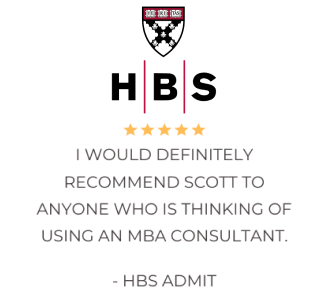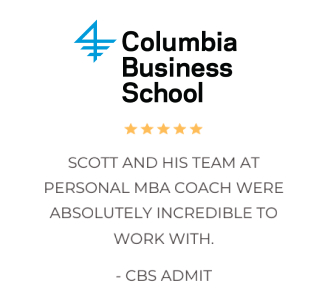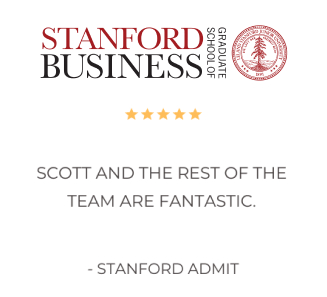Planning an MBA application can feel overwhelming, especially with so many moving parts. The MBA application timeline helps organize the process, so every step is managed at the right time. By breaking the work down into months, you can avoid last-minute stress and give yourself the best chance of success. We guide our clients through each stage with clear planning and steady progress. Staying consistent allows you to approach deadlines with confidence rather than anxiety. Each step has its own purpose, and understanding this flow makes the process easier to manage.
Early Months: Building a Strong Foundation
The first few months of preparation should focus on laying the groundwork. This includes working on test preparation, strengthening professional skills, and exploring schools. We recommend beginning standardized test prep early because reaching a competitive score often takes more time than expected. At the same time, start reflecting on your career goals. Business schools value applicants who have clear plans for their future, so the earlier you begin shaping your story, the better. During this period, research programs and attend school information sessions. Getting to know the culture of each school and the resources they offer will help you later in the application process.
Begin building connections with current students or alumni who can give you insight into their experiences. This work pays off later, as schools notice applicants who are genuinely engaged. Take time to also strengthen leadership opportunities at work or through outside activities. Even small steps now can add meaningful depth to your profile later. By focusing on steady progress in these early months, you build momentum that will carry through the rest of the process.
Spring (for round one applicants) or late summer/early fall (for round 2 applicants): Developing Application Materials
Once you have a solid foundation, the next few months should focus on building the key pieces of your application. Draft your resume in a way that highlights leadership, impact, and growth. The MBA resume is not the same as a job search resume; it should be shorter and more focused on accomplishments that show readiness for business school.
Start outlining your personal story. Think carefully about what motivated your career choices and where you want to go next. Schools want to see that your goals are both ambitious and achievable. This stage also gives you time to test different approaches before finalizing your essays. By spreading this work over several months, you reduce the pressure of writing everything at once.
Summer (for round 1 applicants) or late fall (for round 2 applicants): Writing and Refining Essays
During the summer (or late fall) months, shift your attention toward essays. These pieces form the heart of your application, showing the admissions committee who you are beyond test scores and work experience. Take the time to draft, review, and refine them. A rushed essay rarely conveys depth, while a well-polished essay shows careful thought. It is also helpful to revisit your resume and career goals as you draft essays. Often, one area informs the other. A strong essay should connect seamlessly to your resume and long-term plans. Revisiting your materials together helps build a clear and consistent message across the application.
This is also a good time to reflect on personal stories or challenges that shaped your perspective. By drawing from real experiences, you can create essays that are authentic and memorable. Sharing drafts with trusted mentors or professionals can also help you see gaps or areas to strengthen. By the end of summer (or early December), you should have strong essay drafts that are ready for final review.
Late Summer (for round 1 applicants) or early winter (for round 2 applicants): Finalizing Recommendations and Applications
As deadlines draw closer, focus on pulling everything together. Check in with recommenders to make sure their letters are on track. Make sure you have already provided them with context about your goals so their letters reflect not only what you have done but also where you are headed. This is also the time to refine your essays one last time. Pay close attention to word limits and instructions for each school. Each program has its own requirements, and more than one or two small mistakes can weaken an otherwise strong application. Final polishing at this stage can make a meaningful difference. Creating a timeline of internal deadlines can also help you stay organized. Aim to finish each school application at least a week before the official deadline. This buffer prevents last-minute stress and gives you time to double-check everything. Use this period to finalize supporting materials such as transcripts and test score submissions.
Fall (for round 1 applicants) or winter (for round 2 applicants): Submitting Applications
By the fall months (or the beginning of the new year), it is time to submit your applications. Having done the preparation earlier, this stage should feel more like assembling the final package rather than rushing to complete it. Submit with confidence knowing you have taken the time to shape a strong, consistent message. After submission, shift your focus to interview preparation. Begin practicing responses to common questions and think about how your personal story connects to each school’s culture. The more natural and confident your answers, the stronger your impression will be. Use mock interviews to practice under realistic conditions. Reviewing your own essays and application materials also helps you stay consistent in your responses. By preparing early, you will be ready when interview invitations arrive.
Interviews and Beyond
MBA interviews give schools the chance to see how you communicate, reflect, and connect with others. Preparing for this stage can involve mock interviews and reviewing your own story in depth. The goal is to present yourself clearly while showing genuine interest in the program. After interviews, allow yourself time to recover from the intense work of the past months. Whether results come quickly or take time, you can feel confident knowing you prepared with care and discipline. Each step completed earlier gives you an advantage during interviews. By this stage, you should feel comfortable discussing both your professional background and your personal journey. Remember that the interview is not just about answering questions but also about showing how you will contribute to the school community.
Working through the entire MBA process takes planning and dedication. Many applicants find value in having a partner who knows the process inside and out. Personal MBA Coach has guided applicants for over 17 years, supporting them through every stage from test prep to interviews. Having experienced professionals by your side can make the long journey more manageable and less stressful.
If you are ready to get started, we invite you to contact us to discuss how we can support your MBA application journey.



















